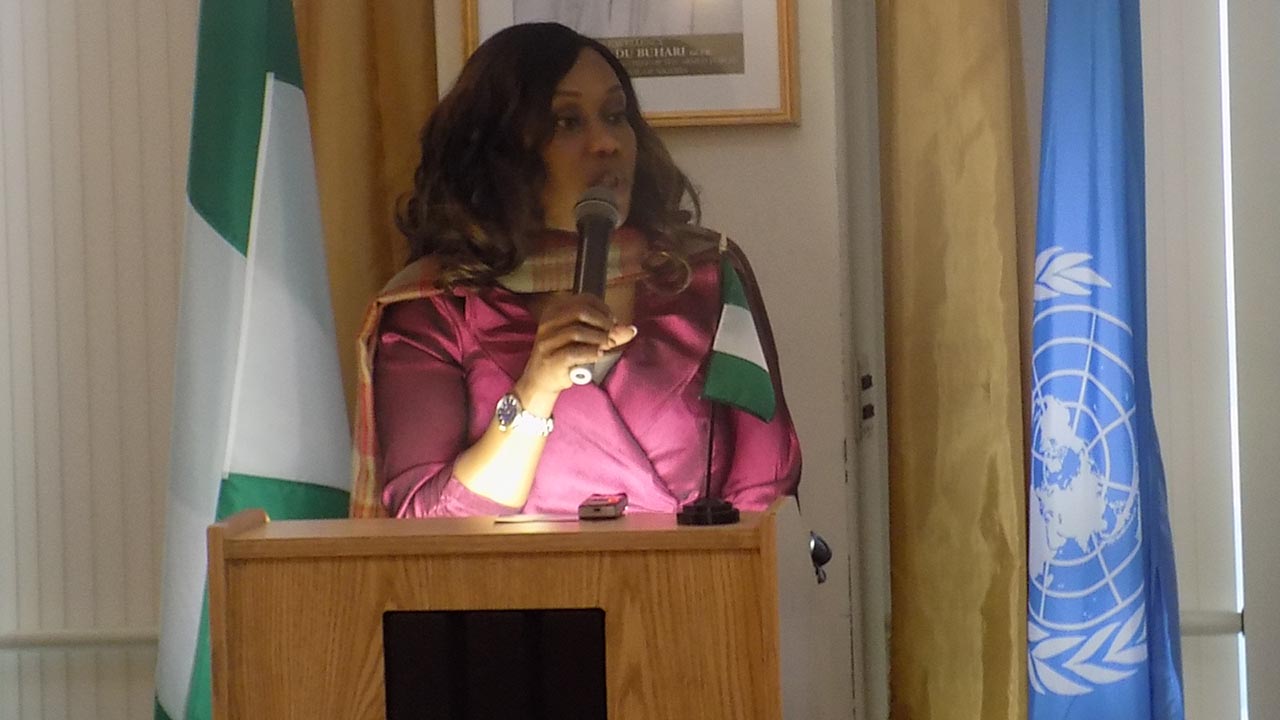
I want to appeal to President Buhari led Federal Government to save Nigerians from slave auctions in Mali. There is urgent need to rescue more than 20,000 Nigerian girl’s traffic to Mali. There is urgent need to protect Nigerian citizens from being sold into slavery. I want to describe the slave trade as a “sickening crime against humanity,” I am wondering why Nigeria was “indifferent”, despite being one of the most affected countries. This is a humiliation not just to Nigeria and Africa as a whole but also to human civilization and the fundamental principles of human rights under the United Nations Charter. Malian government does not have the means nor the commitment to crack down on the perpetrators as their hands are full, hence these smuggling networks are killing, torturing, extorting and detaining migrants at will.
The National Agency for the Prohibition of Trafficking in Persons (NAPTIP) says it is making efforts to rescue about 20,000 Nigerian girls trapped in different parts of Mali. Mrs Julie Okah-Donli, the Director- General of NAPTIP, who made this known in an interview with the News Agency of Nigeria (NAN) in Abuja, said the victims were trapped in different parts of Mali, for prostitution. Okah-Donli said that the trafficked victims were discovered after NAPTIP sent a fact-finding mission to Mali last December, following some security reports. She said:”We sent a fact-finding mission to Mali last month and the mission came with a report that, about 20,000 Nigerian girls had been trafficked to different parts of Mali. “Many of the girls said that they were deceived that, they were being taken to “ “Malisia”, making it sound like Malaysia, to work in hotels, restaurants, hairdressing salons and some other jobs. “Some of the girls arrived there in their school uniforms, meaning that they were kidnapped on their way to or from school,” she said.
The NAPTIP boss decried the living condition of trafficked Nigerians in the West African country, adding that some of the girls were sold for N600, 000 and were made to service, mainly miners. “There are over one million Nigerians residents in Mali, out of which about 20,000 are trapped into forced prostitution. “The conditions are horrible; they are kept in shanties in the thick of the forest where they cannot escape and with the “madames” watching over them. “Their job, mainly, is to service miners from other parts of Africa who are predominant in Northern Mali. “They are bought for N600, 000 and they are made to pay back N1.8million or N2million within six months before regaining freedom and also becoming madams.” She assured that the Nigerian authorities were collaborating with their Malian counter parts as well as the International Organisation for Migration (IOM), to rescue and rehabilitate the victims, most of whom were eager to return.
“Most of the girls are desirous of returning home and we are working with the IOM, the Malian government and the Nigerian Embassy in Mali to see how we can repatriate them. “Our plan is to rehabilitate them immediately they return home, we will have rehabilitation programme on ground before they are repatriated.” Donli-Okah further decried the fact that human trafficking increased by 500 girls daily, while urging Nigerians to be more vigilant. “Trafficking increases by at least, 500 girls daily, they bring them in their hundreds and now, they waybill them through well known motor parks in Cotonou.”It also cuts across all 36 states of Nigeria and happens all over the world. It is no longer about the Edo girls being trafficked to Italy. “I urge Nigerians to be alert and sensitive about their surroundings; they should report suspicious movements to the authorities, especially at our border posts.” (NAN)
That until last week when the Director-General of the National Agency for the Prohibition of Trafficking in Persons (NAPTIP), Mrs. Julie Okah-Donli, disclosed that more than 20,000 Nigerian women and girls were stuck and languishing in Southern Mali and having no choice but to subsist through prostitution.
She said that a fact-finding team of NAPTIP and the International Organization for Migration (IOM) uncovered the existence of the stranded ladies last month. Dozens of Nigerian girls had been repatriated from the Kangaba area of Southern Mali a few months ago, not knowing that thousands more were being held in the area. Local residents told the agencies that more than 200 such locations exist in which between 150 and 200 stranded Nigerian women and girls can be found. The women who were mostly young, aged between 16 and 30, the same demographic profile like their compatriots found in Libya, had been promised a new abode in Malaysia where they would be provided with lucrative jobs in the hospitality industry.
In addition to being held in the ‘middle of nowhere’ they also have to contend with the frightening rituals they were obliged to go through before they embarked on their misadventure by which they must pay the traffickers the agreed sums under the pain of death if they reneged. Given the circumstances, they would rather choose to die in slave labour than violate their oaths.
I commend the Federal Government for its willingness to repatriate these citizens whenever they have been found. But it would appear our chancelleries and consulates are not doing the vital reporting of the fate of Nigerians in the various countries. We would have thought that Nigerian diplomats should be the first to alert the government about the plight of Nigerians in such dire circumstances, not the NAPTIP or the IOM.
President Buhari and Ministry of Foreign Affairs should remind our embassies of this basic fact that it is their duty to report and act on the fate and well-being of Nigerian citizens wherever they may be. Our envoys in Mali should comb the neighborhoods of Mali to ensure that Nigerian women and girls are repatriated at once.I am calling on government at all levels to protect the rights of Nigerians across the world.
•Donald wrote from Bamako, Mali






